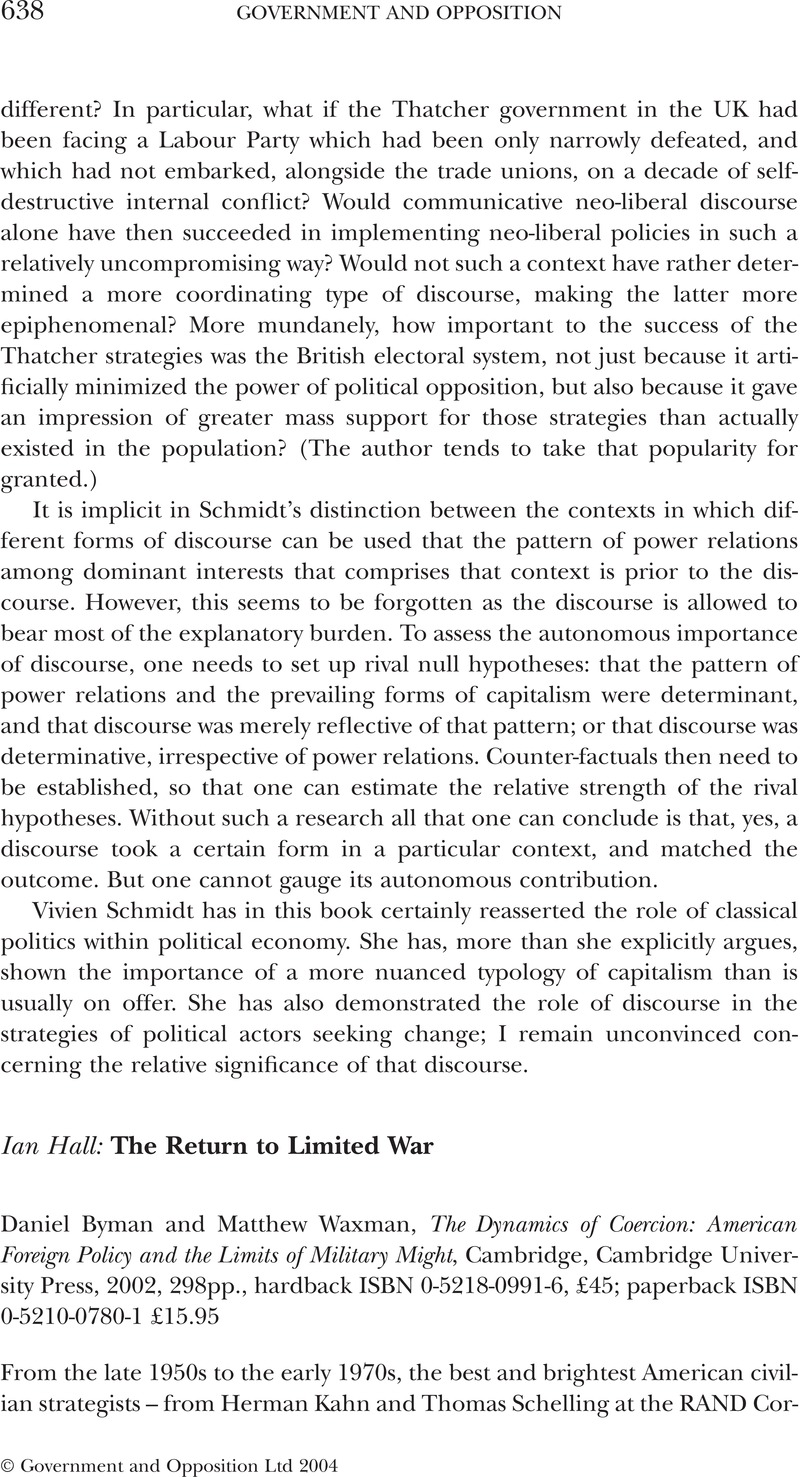No CrossRef data available.

3 There were, of course, many others, including Robert Osgood, whose Limited War: The Challenge to American Strategy, Chicago, University of Chicago Press, 1957, was one of the first works to put forward a critique of ‘massive retaliation’ and offer an alternative.
4 Albert Wohlstetter, ‘The Delicate Balance of Terror’, Foreign Affairs, 37: 2 (1959), pp. 213–36.
5 Lawrence Freedman, The Evolution of Nuclear Strategy, 3rd edn, Basingstoke, Palgrave, 2003, pp. 96–7.
6 Richard K. Betts, Nuclear Blackmail and Nuclear Balance, Washington, DC, Brookings Institution, 1987, p. 95, n. 42.
7 Freedman, The Evolution of Nuclear Strategy, op cit., pp. 244–5.
8 Fred Kaplan, The Wizards of Armageddon, New York, Simon & Schuster, 1983, p. 329.
9 Robert Pape, Bombing to Win: Air Power and Coercion in War, Ithaca, NY, and London, Cornell University Press, 1996, p. 3.
10 Ibid., Fred Kaplan also uses the phrase ‘dark side’ with regard to US strategy in Vietnam (The Wizards of Armageddon, op cit., p. 336).
11 On Brodie, who curiously is not mentioned anywhere in the book, see Barry H. Steiner, Bernard Brodie and the Foundations of American Nuclear Strategy, Lawrence, University Press of Kansas, 1991.
12 Thomas Schelling, Arms and Influence, Westport, VA, Greenwood, 1976 [first published 1966], pp. 70–2.
13 Pape, Bombing to Win, op. cit., p. 331.
14 Graham T. Allison, Essence of Decision: Explaining the Cuban Missile Crisis, New York, HarperCollins, 1971.
15 Schelling, Arms and Influence, op cit., p. 2.
16 Ibid., p. 86.
17 General Wesley Clark, Waging Modern War: Bosnia, Kosovo and the Future of Combat, Oxford, Public Affairs, 2002, p. 203.
18 Schelling, Arms and Influence, op. cit., p. 22.
19 Ibid., p. 34.